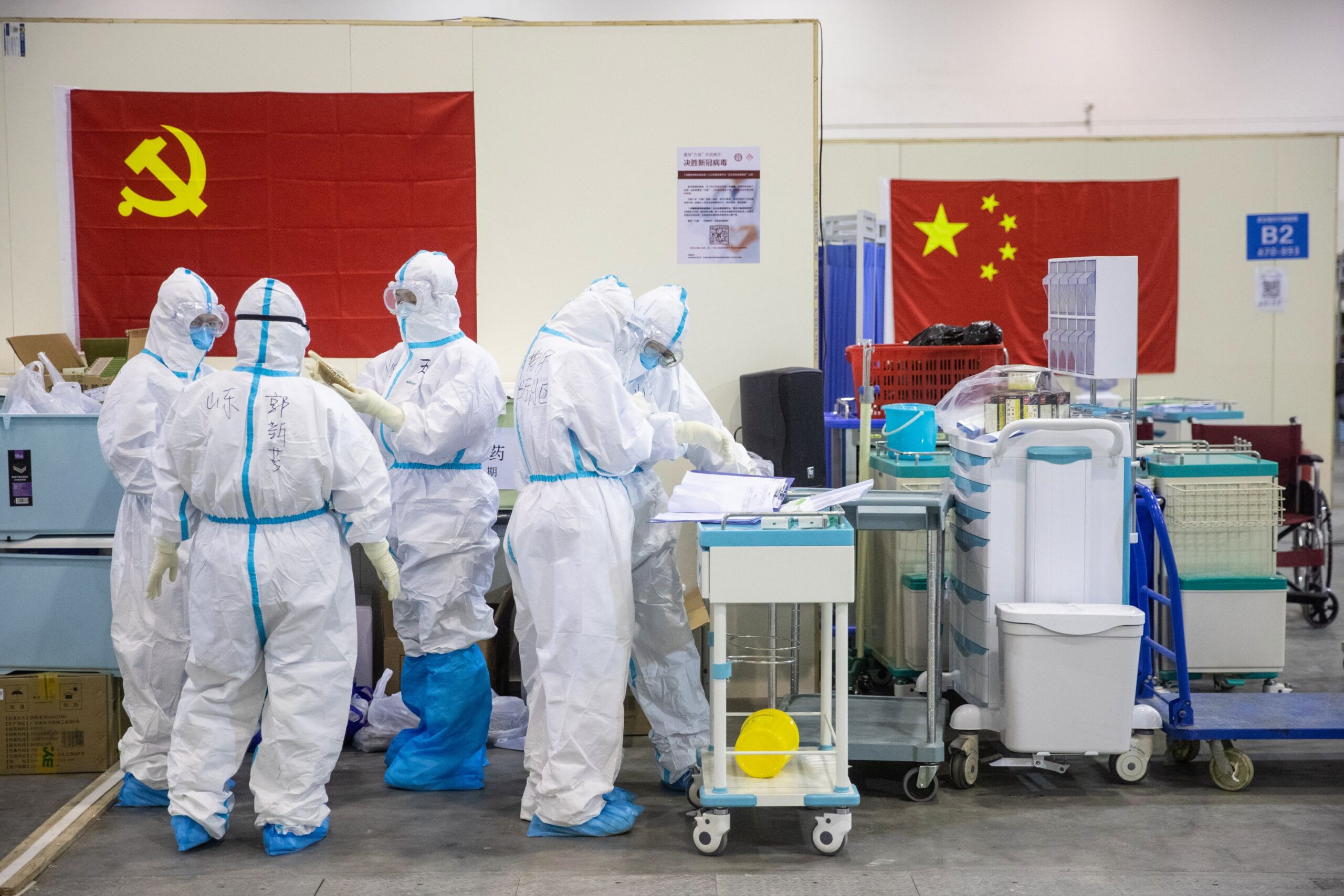Wuhan Hospital Director Dead From Virus
This week, state media in Communist China announced the death of the hospital director in the central city of Wuhan where the new strain of respiratory coronavirus first broke out.
On February 18, 2020, Dr. Liu Zhiming, Director of Wuchang Hospital in Wuhan, Hubei Province, succumbed to the novel infectious disease, according to a CCTV report broadcast by the government:
“Unfortunately he became infected and passed away at 10:54 Tuesday morning at the age of 51 after all-out efforts to save him failed.”
The 51-year-old physician headed containment efforts for the sudden upwelling of COVID-19 cases. Under his administration, Wuchang Hospital treated thousands of new patients who arrived every day.
Some confusion about Liu’s health status arose the previous night. First, a social media post from the Hubei Health Commission reported the hospital chief’s death. A subsequent post contradicted the first statement and claimed that Liu was alive and fighting the illness.
Such conflicting statements further fuel concerns from around the world that Chinese officials have been less than totally honest about what’s going on medically in that nation.
Upon announcing the hospital director’s death, the Wuhan Municipal Health Commission cited Lui as having added “important contributions in the work of fighting and controlling” the previously-unknown viral disease.
Liu is at least the seventh known health worker to die from contracting the Wuhan coronavirus. His wife told reporters on the evening of February 17 that her husband became infected with the COVID-19 virus in January and was transferred to Tongji Hospital last Friday, February 14:
“He was infected quite early, and his illness dragged on for 10 to 20 days.”
More than 1,700 doctors and nurses who have become sick, presenting pneumonia-like symptoms.
Cloth face masks that cover the nose and mouth are in short supply and high demand in China, as are protective full-body suits. Some doctors wear makeshift hazmat suits to work. Some keep up their ministering labors even after they develop respiratory symptoms.
The Wuhan Municipal Health Commission issued a statement later in the day after Dr. Liu’s untimely demise to send condolences to family members and the community:
“The work of fighting and controlling the epidemic in our city is at a critical juncture. We hope the city’s many medical workers can unite as one to rise up to the challenges and fight heroically, to resolutely win the battle of epidemic prevention and control.”
Observers of the growing COVID-19 epidemic have pointed out that the Chinese government first linked the birth of the new strain of coronavirus to unsanitary open-air meat markets. But more recent insider information points to a laboratory experiment gone horribly wrong, whether intentionally or accidentally.
On February 4, Xu Bo, Chairman of Duoyi Network, a Chinese video game company, publicly accused the Wuhan Institute of Virology of releasing the potentially-lethal virus into the general population after researching the transmission of related bat coronaviruses into humans:
“In light of the importance of epidemic prevention, I suspect that the mismanagement of experimental animals and the outflow of viral experimental animals…caused the novel coronavirus outbreak in 2019.”
Two days later, on February 6, a Chinese doctor who tried to warn the world about the dangers of COVID-19, died from the disease. Chinese authorities muzzled Dr. Li Wenliang in December 2019 when he reported the first seven patients with symptoms resembling SARS, another strain of coronavirus that raged throughout southern China and Hong Kong, killing 774 people in 2003.
Li was a 34-year-old opthalmologist who worked at Wuhan Central Hospital in December when he noticed that test results “showed that seven patients from a local market had been diagnosed with an unknown illness that looked a lot like SARS.”
Police responded to Li’s cautionary posts to his medical school classmates in a private messaging group by ordering him to cease and desist sharing this insider information. Li had revealed that all seven patients were quarantined in the emergency department.
Now forced to keep his misgivings silent, the physician returned to work at the viral epicenter, became infected, and died shortly after that.
A message on the Wuhan hospital’s official Weibo account contradicted its previous denials that Li was another victim of the coronavirus:
“In the fight against the pneumonia epidemic of the new coronavirus infection, our hospital’s ophthalmologist, Li Wenliang, was unfortunately infected. He passed away after all the efforts we’ve taken to resuscitate him. We deeply mourn his passing.”
That final announcement followed “several chaotic hours in which Chinese media first reported Li’s death, only for the hospital to respond that Li was alive, though in critical condition.”
One Weibo user expressed outrage over Li’s mistreatment at the hands of the law enforcement agents who told him to put up and shut up:
“None of the police has ever apologised to you. You could have been a national hero, but the dereliction of duty has claimed your life, along with a few hundred innocent lives.”
Another comment invoked a time-honored Chinese social control mechanism that combines peer pressure with finger-wagging:
“The reprimand of Doctor Li will be a shame in China’s anti-epidemic history. Doctor Li alerted the public at the expense of his life. Wuhan police station still hasn’t recalled that reprimand notice even after his death.”
Li is survived by a pregnant wife and a young child. He was one of eight whistleblowers who tried to share what they knew about the new contagion but were denounced by their totalitarian government for “rumormongering.”








Recent Comments